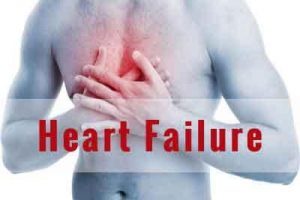- Home
- Editorial
- News
- Practice Guidelines
- Anesthesiology Guidelines
- Cancer Guidelines
- Cardiac Sciences Guidelines
- Critical Care Guidelines
- Dentistry Guidelines
- Dermatology Guidelines
- Diabetes and Endo Guidelines
- Diagnostics Guidelines
- ENT Guidelines
- Featured Practice Guidelines
- Gastroenterology Guidelines
- Geriatrics Guidelines
- Medicine Guidelines
- Nephrology Guidelines
- Neurosciences Guidelines
- Obs and Gynae Guidelines
- Ophthalmology Guidelines
- Orthopaedics Guidelines
- Paediatrics Guidelines
- Psychiatry Guidelines
- Pulmonology Guidelines
- Radiology Guidelines
- Surgery Guidelines
- Urology Guidelines
Check BNP to save patients of heart failure

Heart failure patients discharged from the hospital with a reduced level of a common hormone produced by the heart had significantly lower rates of readmission and lower death rates, according to a new study conducted by researchers at the Intermountain Medical Center Heart Institute in Salt Lake City.
Researchers found that patients who attained a reduction level of a hormone called B-type natriuretic peptide, or BNP, over their heart failure hospitalization had a 30 percent lower rate of readmission to the hospital within 30 days of their original discharge compared to those without a reduction. They also had a significant 54 percent lower mortality rate within 30 days.
For the study, Intermountain Medical Center Heart Institute researchers analyzed 6,887 patients with a primary diagnosis of heart failure who were discharged from any of Intermountain Healthcare's 22 hospitals between January 2014 and May 2017.
Overall, those patients had a 30-day readmission rate of 21.1 percent and a 30-day mortality rate of 12.8 percent. But patients with reduced levels of BNP had a readmission rate of just 16.1 percent and a mortality rate of 7.1 percent after 30 days.
Findings from the Intermountain Medical Center Heart Institute study will be presented at the 2017 Scientific Sessions of the American Heart Association, in Anaheim, CA, at 3:15 pm, PT, on Nov. 12.
"Previously there wasn't enough data in the medical literature that examined the benefit of conducting serial measurements of BNP and the relationship between reduced BNP rates and better outcomes," said Jose Benuzillo, MS, an outcomes analyst for Intermountain Healthcare's Cardiovascular Clinical Program, who led the study.
The reduction in BNP among Intermountain Healthcare's heart failure patients was determined by calculating the relative difference in BNP levels between the admission BNP and the discharge BNP during their hospital stay. About 19 percent of the patients in the study (1,315) had serial measurements.
"Further research is needed to understand which interventions caused the drop in levels of BNP, and which patients responded," Benuzillo said. "We also hope to determine the threshold level of BNP at which better readmission and mortality outcomes are achieved."
How will patients benefit? "Relative changes in BNP may help physicians determine which patients could benefit from advanced medical therapies or screening for end-of-life care," Benuzillo said.
Heart failure, which occurs when the heart is unable to pump blood with normal efficiency, affects about 5.7 million American adults, according to the U.S. Centers for Disease Control and Prevention. It's a contributing cause of about one in nine deaths in America, and roughly half of people who are diagnosed with heart failure die within five years. Heart failure costs an estimated $30.7 billion a year, which includes treatment, medications, and missed days of work.

Disclaimer: This site is primarily intended for healthcare professionals. Any content/information on this website does not replace the advice of medical and/or health professionals and should not be construed as medical/diagnostic advice/endorsement or prescription. Use of this site is subject to our terms of use, privacy policy, advertisement policy. © 2020 Minerva Medical Treatment Pvt Ltd